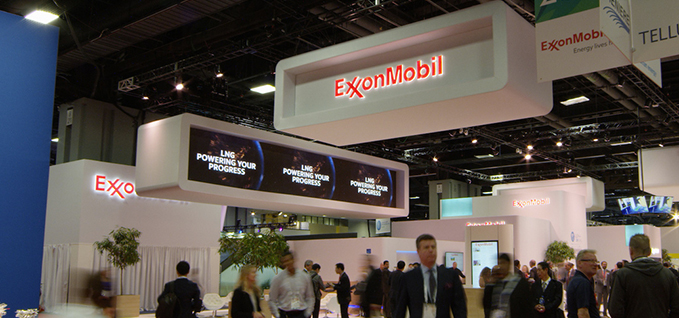Peter Clarke
Senior Vice President, ExxonMobil Upstream Oil & Gas Company
Spotlight Session: The new LNG landscape – LNG Market Trends: challenges and opportunities
April 3, 2019
Shanghai, China
Moderator:
Dr. Xavier Chen, Chief Strategy Officer, ENN Group; President, Beijing Energy Club
Panelists:- Peter Clarke, President, ExxonMobil Gas & Power Marketing Company
- Xiao Ling, VP PetroChina Ltd., President PetroChina Natural Gas Marketing Co.
- Jianyong Qiu, President, CNOOC Gas & Power
- Jixin Ke, Genergal Manager, Zhejiang Energy
- David Knipe, Head of Intl Gas, BP
Thank you, Xavier, for that kind introduction.
It is an honor to be here today in Shanghai, a truly impressive global center for finance and trade. I’m especially proud to join my distinguished colleagues on our panel … many of whom are key partners with ExxonMobil in projects around the world
ExxonMobil first came to China – to Shanghai, in fact – nearly 130 years ago, under the Mei Foo brand. Obviously much has changed since our kerosene lamps lighted up many Chinese homes. China has grown to be the world’s second largest economy, and integrated energy companies like ExxonMobil are partnering with Chinese companies like PetroChina, CNOOC, and Zhejiang; across the energy value chain, from exploration and development to chemicals processing … and those partnerships span the globe.
What has also changed is an increasing focus shared by governments, societies and energy companies, on the shared “dual challenge” of securing reliable, affordable supplies of energy while minimizing environmental impacts.<
Which brings us to the essential role that liquefied natural gas plays in supporting growing economies and aspirations, while addressing environmental challenges.
We’re all aware of the cleaner-burning profile of natural gas, which produces 60 percent fewer greenhouse gas emissions than coal in utility-scale power generation … while emitting significantly fewer pollutants. It’s also the fuel of choice to pair with renewables to provide strong grid reinforcement and stability. Gas for power generation provides two times the grid momentum of coal, and takes minutes to start, versus hours with coal.
These advantages make the Chinese government’s pro-gas strategy both pragmatic and forward-thinking. Particularly notable is the success of coal-to-gas switching, which has enabled China to reap the full benefits of extensive gas utilization … including highly efficient energy production … significantly improved air quality … and a more reliable, responsive electricity system. We are impressed with the government’s continued vision and commitment, which stands as a success case to other governments facing similar challenges.
As major consumers increasingly turn to natural gas to fuel their energy mix, the call on LNG is growing. The global LNG business is expected to triple by 2040, to approximately 660 million tons annually.
At the same time, the remarkable growth in North American gas resources has transformed the global supply environment. Similarly, the business of selling and delivering gas to customers is changing … with greater liquidity, increased competition, and more buyers as well as sellers.
In this context technology becomes even more critical as a differentiator. It’s certainly a key focus for us … over our two-and-a-half decades in the LNG industry we’ve developed technology to design and build the largest trains and largest tankers, and to become more efficient, reduce cost and reduce emissions. And this focus on technology, efficiency, as well as project execution pays dividends … as an example it’s allowing us to consider a three-train expansion of our LNG plan in Papua New Guinea – potentially doubling that project’s capacity. And of course we will deploy our technologies and leading project management skills to our US Golden Pass and Mozambican Rovuma LNG projects
Successful suppliers in the dynamic global LNG market will need a robust and flexible portfolio, creative commercial offers, an ongoing focus on technology and efficiency, and an absolute commitment to deep, mutually beneficial partnerships.
Those partnerships are essential to ensuring reliable LNG supplies to the markets that need them. It is critical for suppliers and customers to work together to overcome market impediments – whether that be market design, infrastructure or regulatory challenges.
ExxonMobil is proud to be a constructive partner in this effort, not just as a reliable, nimble supplier but also by adding value as a global market player which shares its experience and insights to develop successful projects around the world. These collaborations are critical to achieving both the massive scale and low costs necessary for success.
In closing, let me say that in the midst of an evolving energy landscape and a dynamic marketplace, we’re excited about the critical role natural gas will continue to play in powering the world economy and fueling its growth. And we’re looking forward to working with partners and customers in this room to support our collective long-term energy and environmental goals.
Thank you.

